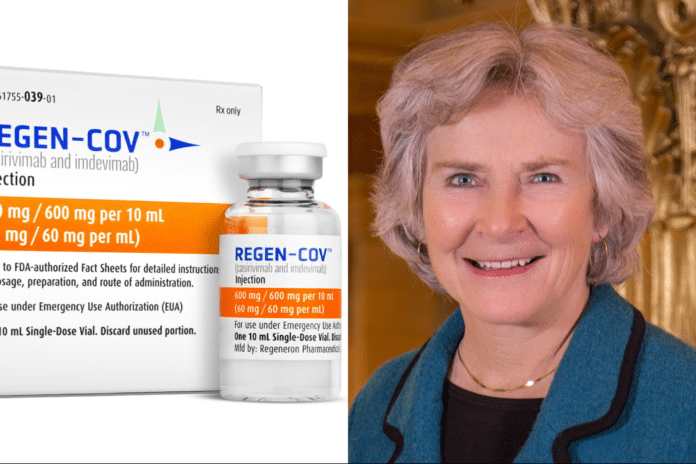The Minnesota Department of Health was threatened with a lawsuit Wednesday for using race as a factor in its rationing of monoclonal antibodies, a life-saving treatment for COVID-19.
As Alpha News first reported, the Minnesota Department of Health (MDH) says in a guidance for health care workers that “race and ethnicity alone, apart from other underlying health conditions, may be considered in determining eligibility for [monoclonal antibodies].”
Monoclonal antibodies “are made in a laboratory and act a lot like the natural antibodies that a person’s body makes to fight diseases,” per MDH. Thus far, they have been used to both treat active COVID cases and help prevent healthy people from becoming infected. The antibodies have shown so much promise, in fact, that national supplies are running low amid surging demand, resulting in some patients being denied the treatment.
Minnesota’s solution is to ration the treatment based on various health factors, each assigned a different score.
As of Dec. 23, MDH was using a point system called the “Monoclonal Antibody Screening Score-BIPOC+Pregnant,” which it referred to as “MASSBP” for short. Under this point system, “BIPOC status” was worth two points, meaning in a situation involving a white person and a black person with the same health conditions, the black person would be prioritized for the treatment simply because of the color of their skin.
However, MDH updated its guidance Wednesday and now uses a point system called the “modified Monoclonal Antibody Screening Score,” which it calls “M-MASS.” This point system does not take “BIPOC status” into consideration.
Although the point system has been changed, the guidance itself still tells health officials to consider “race and ethnicity when determining eligibility for” monoclonal antibodies. This is also something the FDA recommends.
It’s unclear exactly when MDH decided to change its point system, but the guidance was updated Wednesday — the same day MDH was threatened with legal action.
“This letter serves as notice of potential legal action related to the blatantly unconstitutional, immoral, and racist policies of the Minnesota Department of Health that direct the rationing of medicine based on race and self-selected ethnicity,” Gene Hamilton, vice president and general counsel at the America First Legal Foundation, wrote in a letter to Health Commissioner Jan Malcolm.
Hamilton’s group has also threatened to sue Utah and New York over similar policies, which subject “an entire class of citizens to unequal treatment based on the color of their skin.”
“Using a patient’s skin color or ethnicity — rather than the unique and specific medical circumstances of an individual patient — as a basis for deciding who should obtain life-saving medical treatment is appalling,” he wrote to Malcolm.
“Directing medical professionals to provide or deny medical care based on immutable characteristics like skin color, without regard to the particular health conditions of the individual patients who are seeking these life-saving antiviral treatments, is nothing more than an attempt to establish a racial hierarchy in the provision of life-saving medicine.”

















